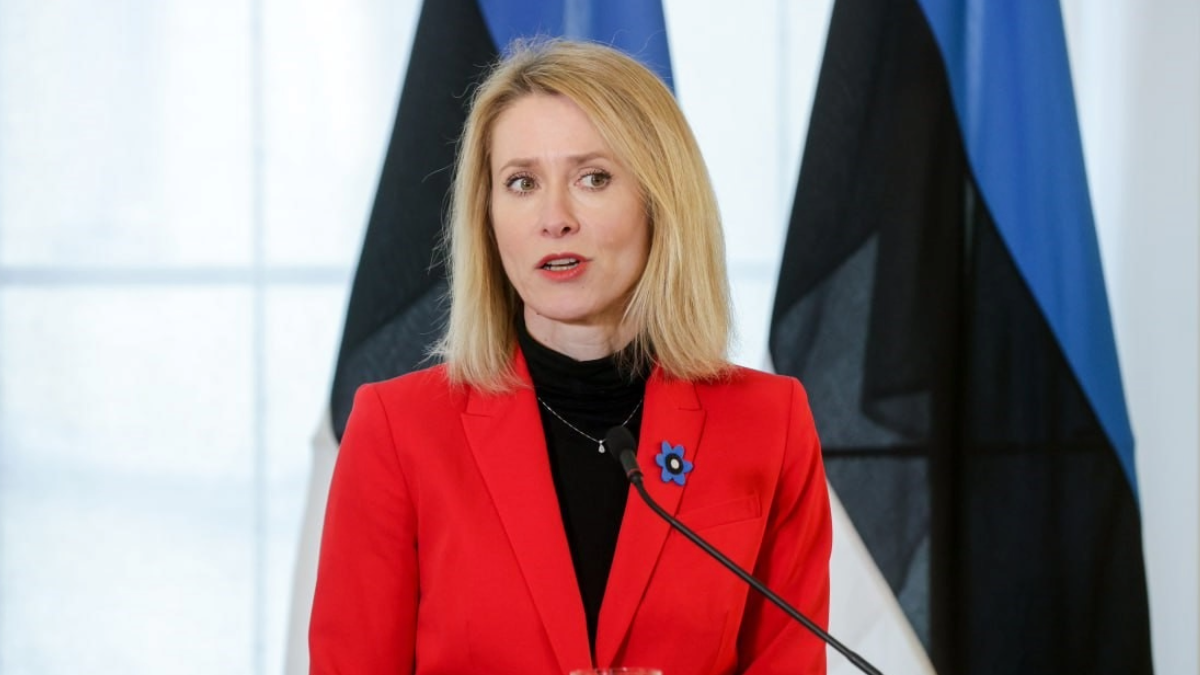Being able to communicate effectively (i.e. strategic communication) is probably the most important skill of the information age. Understanding the world around us, the information space we live in, is also crucial. If you can’t get your point across, it does not matter how good your strategy or ideas are. Others will beat you to it because we live in a very competitive information ecosystem: anyone can (and will) attempt to influence others by sharing information in calculated and targeted ways.
This Strategic Communication Toolkit provides you with the resources you need to become an expert in the art of planning, creating, and delivering targeted messages to specific audiences with the aim of influencing their thoughts, feelings, and behaviours (learn more about what is strategic communication here). It is a comprehensive resource designed for students, scholars, and professionals to navigate the complexities of the infosphere, including its challenges such as misinformation and propaganda.
The toolkit provides both theoretical and practical insights on strategic communication, including key research centres, periodic publications, podcasts, studies, and books. It equips users with the skills to critically assess information and understand influence dynamics and tactics, joining insights from multiple disciplines including International Relations, Political Communication, Psychology, and Computer Science. It is intended as a non-partisan collection; however, it is written from a Western European perspective and includes both governmental and non-governmental sources.
This builds on my 8+ years of research and practice in strategic communication, as I have worked for the EU’s largest public diplomacy programme, conducted studies on public strategic communication policies, and received several scholarships and awards in the process. Learn more about my background here.

Convince Them in 90 Seconds or Less: Make Instant Connections That Pay Off in Business and in Life
This book is among those which I’ll always keep on my bookshelf. It offers techniques to forge powerful connections in a short time, using body language, communication, and psychology. Useful for anyone seeking to improve their impact in business, politics, as well as personal relationships.
The Collected Essays, Journalism, and Letters of George Orwell
Spanning 30 years, this collection offers Orwell’s unfiltered view on politics, poverty, war, and language. It includes essays, journalism, and letters reflecting his evolution as a writer and social critic, known for his fierce honesty and fight against totalitarian control.
Foolproof: Why Misinformation Infects Our Minds and How to Build Immunity
In this book, renown psychology researcher Sander van der Linden explains why our brains are vulnerable to misinformation, how it spreads across social networks, and what we can do to protect ourselves and others. It provides valuable lessons for anyone seeking to develop effective practices to counter interference and enhance critical thinking.
Active Measures: The Secret History of Disinformation and Political Warfare
Political scientist Thomas Rid dives into the history of disinformation campaigns, from early 20th century Soviet tactics to modern “active measures.” It explores how superpowers like the US and USSR used fabricated news and deception to influence public opinion and sow discord.
Think Again: The Power of Knowing What You Don’t Know
This incredible book by Adam Grant argues for the power of reevaluating our beliefs. It champions intellectual humility, questioning assumptions, and embracing the joy of being wrong. By learning to think flexibly, we can improve our relationships, work, and overall success.
Words Like Loaded Pistols: The Power of Rhetoric from the Iron Age to the Information Age
In Words Like Loaded Pistols, Sam Leith traces the art of argument from ancient Greece through the present day. He introduces verbal villains from Hitler to Donald Trump—and the three musketeers: ethos, pathos, and logos. He explains how rhetoric works in speeches from Cicero to Zelensky and pays tribute to the rhetorical brilliance of AC/DC’s “Back in Black.” Before you know it, you’ll be confident in chiasmus and proud of your panegyrics—because rhetoric is useful, relevant, and crucial to understanding the world around us.
Some Dare Call It Conspiracy
This podcast aims to deconstruct and demystify popular conspiracy theories. After 20 years exploring the world of conspiracy culture, the hosts (former conspiracy theorists) take guests and listeners on a guided tour of the Rabbit Hole. Their objective is to discover where the truth lies, highlighting caveats between facts and fiction.
Stanford Psychology Podcast
This podcast invites leading psychologists to talk about what’s on their mind lately. Join Eric Neumann, Anjie Cao, Kate Petrova, Bella Fascendini, and Joseph Outa as they chat with their guests about their latest exciting work. Every week, an episode will bring you new findings from psychological science and how they can be applied to everyday life.
The Hague Diplomacy Podcast
Hosted by The Hague Journal of Diplomacy, this podcast hosted by Ilen Madhavji dives into the latest research on diplomacy, with guests ranging from academics to diplomats and topics from science diplomacy to international power struggles.
The Future of Journalism
The podcast of the Reuters Institute for the Study of Journalism shares comprehensive insights from the latest research produced at their centre, including trends and predictions about the industry, as well as analyses of the most recent challenges for journalists such as artificial intelligence.
European Speechwriters
This podcast shares advice and wisdom from the greatest speechwriters in the worlds of business and politics. It is a series of talks recorded at the European Speechwriter Network Conferences.
Tech Tonic
This podcast by the Financial Times investigates the promises and perils of technological progress, providing weekly insights into current affairs such as artificial intelligence and the politics surrounding it.
Bellingcat
Bellingcat is an independent investigative collective specializing in open-source intelligence (OSINT). Based in the Netherlands, it exposes misinformation, human rights abuses, and corruption, with notable investigations on conflicts, surveillance, and state-sponsored disinformation.
Reporters Without Borders (RSF)
Reporters Without Borders (RSF) is a Paris-based NGO that defends press freedom worldwide. With a network of correspondents in 130 countries, it monitors abuses against journalists, conducts advocacy, and publishes the annual World Press Freedom Index.
Slow Factory
Slow Factory is a New York-based nonprofit advancing climate justice and cultural equity through education, design, and systems change. It operates as a climate innovation lab and media platform, offering free courses, fellowships, and public campaigns to empower communities.
Freedom House
Freedom House is a Washington, DC-based NGO that conducts research and advocacy on democracy, political freedom, and human rights. Its annual “Freedom in the World” and “Freedom on the Net” reports assess global trends in media and expression.
Ground News
Ground News is a media literacy platform and news aggregator that helps readers compare how stories are covered across the political spectrum. Founded in 2018, it pulls content from over 50,000 sources and uses independent ratings to display bias, ownership, and factual reliability. By showing multiple perspectives on the same issue, Ground News empowers users to break out of filter bubbles, recognize media bias, and make more informed decisions.
Center for Information Resilience (CIR)
The Center for Information Resilience is a UK-based NGO that conducts digital investigations to expose human rights abuses, war crimes, and disinformation. It supports journalists and civil society with verified visual evidence and OSINT tools.
Reuters Institute for the Study of Journalism
The Reuters Institute for the Study of Journalism is based at Oxford University. It publishes regular studies and analytic reports on the future of journalism. Its “Trust in News” and “Digital News” project provides valuable insights into the changing world of journalism and its effects on society.
Cambridge Social Decision-Making Lab
The Social Decision-Making Lab of Cambridge University explores the social and cognitive psychological processes underlying human social judgment, communication, and decision-making. It hosts some of the most important research on the drivers of misinformation and erroneous beliefs, as well as potential solutions to this challenge.
Oxford Internet Institute
The Oxford Internet Institute is a multidisciplinary research and teaching department of the University of Oxford, dedicated to the social science of the Internet. Its research output is at the intersection between politics, technology, and philosophy.
Shorenstein Center on Media, Politics and Public Policy
The Shorenstein Center on Media, Politics and Public Policy is a Harvard Kennedy School research center dedicated to increasing understanding of how people access, create, and process information, particularly as it relates to news and societal issues, and describing potential solutions to the problems facing our information ecosystem.
HKS Misinformation Review
The Harvard Kennedy School Misinformation Review is a new format of peer-reviewed, scholarly publication. Content is produced and “fast-reviewed” by misinformation scientists and scholars, released under open access licensing, and geared towards emphasizing real-world implications.
Knight First Amendment Institute
The Knight First Amendment Institute at Columbia University produces research related to freedoms of speech and the press in the digital age. Its “Algorithmic Amplification and Society” project provides invaluable insights into the functioning of social media and how it propagates information online.
NATO Strategic Communications Centre of Excellence
The NATO StratCom CoE is a research centre mainly funded by the government of Latvia, which publishes analyses and studies on foreign interference and influence operations that are relevant for the Western world, in particular from Russia and China.
USC Center on Public Diplomacy
The USC Center on Public Diplomacy (CPD) was established in 2003 as a partnership between the Annenberg School for Communication and Journalism and the School of International Relations at the University of Southern California. It is a research, analysis and professional education organization dedicated to furthering the study and practice of global public engagement and cultural relations.
PITCH: Strategic communication as a tool of global influence (2023) UK Government Communication Service
Basic Marketing Fundamentals: The 7 Ps of Marketing (2022) by Alexander Santo
Using the Wayback Machine and Google Analytics to Uncover Disinformation Networks (2024) by Justin Clark
These are the Tools Open Source Researchers Say They Need (2022) by Johanna Wild
A Toolkit on Using Counterspeech to Tackle Online Hate Speech (2022) by The Future of Speech Project

Bibliography of Fundamental Academic References
Propaganda, Disinformation, Misinformation… What’s the difference? (2023) by Sophie L. Vériter
A Dictionary of Media and Communication (2020) by Daniel Chandler and Rod Munday
Lexicon of Lies: Terms for Problematic Information (2017) by Caroline Jack
Information disorder: Toward an interdisciplinary framework for research and policy making (2017) by Claire Wardle and Hossein Derakhshan
Defining Strategic Communication (2007) by Kirk Hallahan et al.
Defining Misinformation and Understanding its Bounded Nature: Using Expertise and Evidence for Describing Misinformation (2020) by Emily K. Vraga and Leticia Bode
A systematic literature review on disinformation: Toward a unified taxonomical framework (2020) by Eleni Kapantai et al.
Soft power: the origins and political progress of a concept (2017) by Joseph Nye
Making Sense of Media and Politics: Five Principles in Political Communication (2022) by Gadi Wolfsfeld
Strategic Narratives: Communication Power and the New World Order (2013) by Alister Miskimmon, Ben O’Loughlin, and Laura Roselle
Articulating influence: Toward a research agenda for interpreting the evaluation of soft power, public diplomacy and nation brands (2014) by James Pamment
Disinformation in international politics (2019) by Alexander Lanoszka
Disinformation as Political Communication (2020) by Deen Freelon and Chris Wells
Countering Online Propaganda and Extremism: The Dark Side of Digital Diplomacy (2019) by Corneliu Bjola and James Pamment
Beyond the New Public Diplomacy (2011) by Jan Melissen
Boundary Spanners of Humanity: Three Logics of Communications and Public Diplomacy for Global Collaboration (2022) by Rhonda Zaharna
The psychological drivers of misinformation belief and its resistance to correction (2022) by Ecker et al.
Less than you think: Prevalence and predictors of fake news dissemination on Facebook (2019) by Andrew Guess, Jonathan Nagler, and Joshua Tucker
Susceptibility to misinformation is consistent across questionframings and response modes and better explained by myside bias and partisanshipthan analytical thinking (2023) by Roozenbeek et al.
The Social Psychology of Gullibility: Conspiracy Theories, Fake News and Irrational Beliefs (2019) by Joseph P Forgas and Roy Baumeister
Information battleground: Conflict perceptions motivate the belief in and sharing of misinformation about the adversary (2023) by Honorata Mazepus et al.
Misinformation in action: Fake news exposure is linked to lower trust in media, higher trust in government when your side is in power (2020) by Katherine Ognyanova et al.
Algorithmic Amplification of Politics and Engagement Maximization on Social Media (2024) by Paul Bouchaud
Feedback Loop and Bias Amplification in Recommender Systems (2020) by Masoud Mansoury
Understanding Social Media Recommendation Algorithms (2023) by Arvind Narayanan
How persuasive is AI-generated propaganda? (2024) by Goldstein et al.
AI model GPT-3 (dis)informs us better than humans (2023) by Spitale et al
Escape Me If You Can: How AI Reshapes News Organisations’ Dependency on Platform Companies (2023) by Felix M. Simon
Propaganda and Mass Persuasion: A Historical Encyclopedia, 1500 to the Present (2003) by Nicholas J. Cull, David H. Culbert, and David Welch
Public Diplomacy: Taxonomies and Histories (2008) by Nicholas J. Cull
A Short Guide to the History of ‘Fake News’ and Disinformation: A New ICFJ Learning Module (2018) by Julie Posetti and Alice Matthews
The science of fake news: Addressing fake news requires a multidisciplinary effort (2018) by David M. J. Lazer et al.
Evaluating the fake news problem at the scale of the information ecosystem (2020) by Jennifer Allen et al.
Industrialized Disinformation: 2020 Global Inventory of Organized Social Media Manipulation (2021) by Samantha Bradshaw, Hannah Bailey, and Philip N. Howard
The Russian “Firehose of Falsehood” Propaganda Model: Why It Might Work and Options to Counter It (2016) by Christopher Paul and Miriam Matthews
Computational Propaganda: Political Parties, Politicians, and Political Manipulation on Social Media (2018) by Samuel C. Woolley and Philip N. Howard
Social Media, Political Polarization, and Political Disinformation: A Review of the Scientific Literature (2018) by Joshua A. Tucker et al.
Social Media and the Post-Truth World Order: The Global Dynamics of Disinformation (2020) by Gabriele Cosentino
Democracy and Media Decadence (2013) by John Keane
Apostles of Certainty: Data Journalism and the Politics of Doubt (2018) by C.W. Anderson
Digital News Report 2023 (2024) by Nic Newman et al.
Social Media and Democracy: The State of the Field and Prospects for Reform (2020) by Nathaniel Persily and Joshua A. Tucker
2024 World Press Freedom Index (2024) by Reporters Without Borders (RSF)
News Media Trust and News Consumption: Factors Related to Trust in News in 35 Countries (2019) by Antonis Kalogeropoulos
Overcoming indifference: what attitudes towards news tell us about building trust (2021) by Benjamin Toff et al.
Artificial Intelligence in the News: How AI Retools, Rationalizes, and Reshapes Journalism and the Public Arena (2024) by Felix M. Simon
News for the powerful and privileged: How misrepresentation and underrepresentation of disadvantaged communities undermine their trust in news (2023) by Amy Ross Arguedas et al.
Studying fake news spreading, polarisation dynamics, and manipulation by bots: A tale of networks and language (2023) by Giancarlo Ruffo et al.
Measuring the Effects of Influence Operations: Key Findings and Gaps From Empirical Research (2021) by Jon Bateman et al.
The spread of true and false news online (2018) by Soroush Vosoughi, Deb Roy, and Sinan Aral
Measuring the reach of “fake news” and online disinformation in Europe (2019) by Richard Fletcher et al.
Disinformation as Collaborative Work: Surfacing the Participatory Nature of Strategic Information Operations (2019) by Kate Starbird, Ahmer Arif, and Tom Wilson
When are strategic narratives effective? The shaping of political discourse through the interaction between political myths and strategic narratives (2018) by Olivier Schmitt
Justifying an Invasion: When Is Disinformation Successful? (2024) by Jan Zilinsky et al.
Government responses to online disinformation unpacked (2023) by Samuel Cipers, Trisha Meyer, and Jonas Lefevere
A guide to anti-misinformation actions around the world (2019) by Daniel Funke and Daniela Flamini
Measuring the Efficacy of Influence Operations Countermeasures: Key Findings and Gaps From Empirical Research (2021) by Jon Bateman et al.
In Praise of Skepticism: Trust but Verify (2022) by Pippa Norris
The Political Power of Platforms: How Current Attempts to Regulate Misinformation Amplify Opinion Power (2020) by Natali Helberger
Information defense: Policy measures taken against foreign information manipulation (2021) by Jean-Baptiste Jeangène Vilmer
Toolbox of individual-level interventions against online misinformation (2024) by Anastasia Kozyreva et al.
Countering Misinformation and Fake News Through Inoculation and Prebunking (2021) by Stephan Lewandowsky and Sander van der Linden
Normative Power Europe Caving In? EU under Pressure of Russian Information Warfare (2018) by Charlotte Wagnsson and Maria Hellman
The EU’s Role in Fighting Disinformation: Crafting A Disinformation Framework (2020) by James Pamment
Transforming practices of diplomacy: the European External Action Service and digital disinformation (2021) by Elsa Hedling
Small‐State Influence in EU Security Governance: Unveiling Latvian Lobbying Against Disinformation (2024) by Sophie L. Vériter
The European approach to online disinformation: geopolitical and regulatory dissonance (2023) by Andreu Casero-Ripollés, Jorge Tuñón, and Luis Bouza-García
Genesis and evolution of EU anti disinformation policy: entrepreneurship and political opportunism in the regulation of digital technology (2022) by Veronika Datzer and Luigi Lonardo
Deferring substance: EU policy and the information threat (2019) by Hedvig Örden
Social media platforms and challenges for democracy, rule of law and fundamental rights (2023) by Beatriz Botero Arcila and Rachel Griffin
Critical disinformation studies: History, power, and politics (2021) by Rachel Kuo and Alice Marwick
The Fourth Revolution: How the Infosphere is Reshaping Human Reality (2014) by Luciano Floridi
The Problem With Defining “Disinformation” (2022) by Gavin Wilde
Mis- and disinformation studies are too big to fail: Six suggestions for the field’s future (2022) by Chico Q. Camargo and Felix M. Simon
What do we study when we study misinformation? A scoping review of experimental research (2016-2022) (2023) by Gillian Murphy et al.
The Philosophy of Information (2011) by Luciano Floridi
Don’t Hype the Disinformation Threat (2024) by Olga Belogolova, Lee Foster, Thomas Rid, and Gavin Wilde
This toolkit is intended to be comprehensive but by no means exhaustive. If you have any suggestions of additions of this list, please do get in touch at he***@*********me.com.
Sophie L. Vériter

About the Author
Sophie L. Vériter is a PhD candidate in Security and Global Affairs at Leiden University (Campus The Hague), where her research examines the latest developments in misinformation and counter-misinformation policies, in particular in Europe.
Sophie is broadly interested in the relationship between information, technology, and democracy, and the narratives that surrounds information governance. She has been a Europaeum Scholar as well as a Fellow at The Hague Program on International Cyber Security and the Global Governance Institute.
From 2016 to 2018, she designed and launched the ‘Young European Ambassadors’ initiative for the EU’s largest public diplomacy campaign (EU OPEN Neighbourhood). Sophie holds a MPhil in European Politics and Society (Merit) from the University of Oxford and a BA (Summa Cum Laude) from the Brussels School of Governance.



